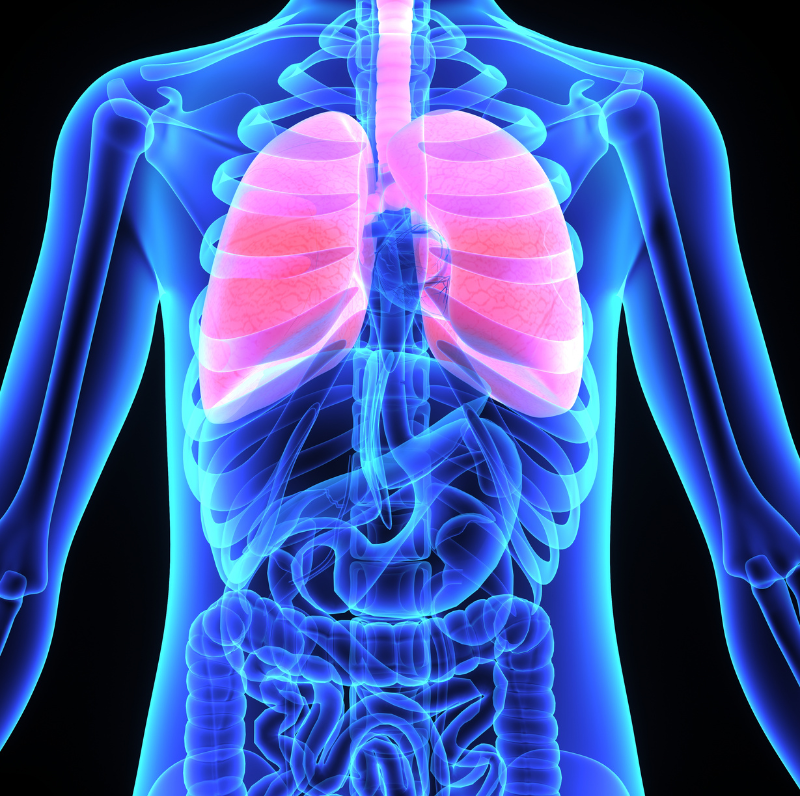
Health starts in your gut – listen to it!
Lots of different types of bacteria, viruses, and fungi call your body home, and most of them live in your gut. This bacteria in the gut, or the gut microbiome, is responsible for much more than just digestive problems. In fact, bacteria get a bad reputation – some causes disease but others are important for your health. They help dictate how we feel and how our bodies function.
When there isn’t enough diversity in your gut microbiome, it increases the risk of chronic diseases.
What is the gut-lung axis?
You may have heard that there is a connection between your gut and your brain, but did you know that there’s also a connection between your gut and your lungs? Long-term digestive problems can make you more likely to develop breathing problems.
The gut-lung axis concept introduces the idea that imbalances in the gut microbiome play a role in respiratory health and the risk of lung disease. Despite ongoing research, the gut-lung axis is still not completely understood. However, researchers have found alterations in the microbiome in patients with chronic lung diseases like asthma and COPD, and in chronic GI conditions like inflammatory bowel disease (IBD) and irritable bowel syndrome (IBS).
Some other major lung conditions that are affected by the gut microbiome are cystic fibrosis, lung cancer, tuberculosis, and even COVID-19. Some of these conditions, like asthma, can affect newborn babies if the mother’s gut microbiome is out of balance. Infants get their initial gut microbiome from their mothers, and it can also be influenced through breastfeeding.
How does the gut microbiome get out of balance?
Dietary and lifestyle habits have a lot to do with the gut microbiome. Some things that can cause imbalances are:
- Sudden changes to the diet
- Consuming large amounts of processed foods or foods with added sugars
- Drinking two or more alcoholic beverages a day
- Medications, like antibiotics
- Poor dental hygiene allows the growth of bacteria in the mouth
- High levels of stress or anxiety
What are the symptoms of gut dysbiosis?
Signs of digestive problems are things you don’t want to ignore. Food intolerance, bloating, constipation, cramps, diarrhea, heartburn, acne, chronic fatigue, anxiety, and depression are common symptoms of an unbalanced gut microbiome. So how do you know when these are “normal” stomach issues and when they could be something more? If you’ve had these symptoms for more than a couple of days, it might be time to talk to a doctor. The longer your gut microbiome is out of balance the more the risks increase.
Want to improve your gut microbiome?
Here are some ways you can improve your gut microbiome just by changing your diet and other daily habits:
- Make your plate colorful – eat lots of fruits and veggies, and incorporate all the colors of the rainbow
- Make sure you’re eating enough fiber
- Cut down on sugar and avoid processed foods
- Limit red meat consumption
- Add fermented foods – things like yogurt, kimchi, and kombucha are sources of good bacteria
- Reduce stress – you’ve probably heard this before, but lowering stress has an overall positive impact on health, including the gut
- Add movement to your routine – staying physically active helps keep the microbiome healthy. Working out, walking, or doing yoga are also great ways to reduce stress.
In most cases, gut dysbiosis isn’t too serious and can be treated easily. To reduce the risk of developing chronic conditions, you don’t want to leave it untreated for too long. Talk to your doctor if you have any unusual stomach pain or if it lasts longer than a couple of days.
Written by BWS Dietetic Intern– Kristyn Schulman
Continue reading November 2022 Newsletter: Mindful Breathing
